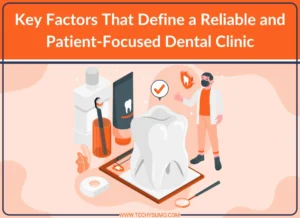Let’s be honest—when we go to a hospital or a clinic, we want to believe that every medical decision is made with our health in mind, not someone’s bottom line. But sometimes, the people we trust to heal us are caught up in something far less noble.
That’s exactly what happened with Innovasis, Inc.—a company that found itself smack in the middle of a healthcare kickback scandal that’s turning heads and raising serious questions about ethics in medicine. The hero in this story? A former sales director who risked it all to do the right thing.
Table of Contents
- Meet the Man Who Blew the Whistle
- The High Stakes of Medical Kickbacks
- Digging Deeper: DOJ’s Investigation Lifts the Lid
- A Price Tag for Corruption: Innovasis Agrees to Pay Up
- Richardson’s Reward: A Well-Earned $2.2 Million
- Why Whistleblowers Matter More Than Ever
- Understanding Healthcare Kickbacks: The Basics
- What This Means for the Future of Healthcare
- Have Information About Healthcare Fraud?
Meet the Man Who Blew the Whistle
Rover Richardson wasn’t just another employee at Innovasis. As a regional sales director, he had a front-row seat to the company’s operations. And what he saw? Well, it didn’t sit right with him. We’re talking about a company paying spine surgeons under the table—through “consulting fees,” “royalties,” and “research grants”—to use its spinal devices.
These weren’t just thank-you notes and branded pens. These were multi-million dollar deals dressed up to look legitimate. But underneath? It was all about influence—getting doctors to choose Innovasis devices, whether or not they were in the best interest of the patient.
And that, my friends, is a classic healthcare kickback scheme.
Also Read
The High Stakes of Medical Kickbacks
Here’s the deal. When a medical device company starts handing out money to surgeons, it shifts the focus from patient care to profit margins. Richardson saw that happening and knew it was wrong. So, he took a bold step.
He filed a lawsuit under the qui tam provision of the False Claims Act. That basically means he sued Innovasis on behalf of the government, saying, “Hey, these folks are stealing taxpayer dollars and compromising patient care.”
And guess what? The Department of Justice (DOJ) took him seriously.
Digging Deeper: DOJ’s Investigation Lifts the Lid
The DOJ dove headfirst into the case, and what they found wasn’t pretty. Innovasis had been channeling serious cash to physicians—money that was often camouflaged as business expenses. But the more the investigators peeled back the layers, the clearer the picture became: these were kickbacks, plain and simple.
Doctors who were getting paid were disproportionately using Innovasis’s devices. And that raised red flags. Were they choosing the best option for their patients, or just the one that padded their wallets?
In the world of healthcare, that’s a terrifying question to ask.
A Price Tag for Corruption: Innovasis Agrees to Pay Up
As the evidence piled up, Innovasis eventually agreed to settle. The company coughed up a whopping $12 million in a civil settlement to resolve the allegations.
But the story doesn’t end with the check being written. The settlement came with strings attached—some major ones. Innovasis was required to roll out a full-blown compliance program. We’re talking:
- Serious employee training on legal and ethical standards
- Tightened scrutiny on financial transactions
- Routine audits to keep everyone honest
It’s not just a slap on the wrist. It’s a commitment (at least on paper) to change the way they do business.
Richardson’s Reward: A Well-Earned $2.2 Million

So what happens to a guy who risks his career, his relationships, and potentially his safety to call out fraud?
Well, in this case, he got a slice of the settlement—$2.2 million, to be exact. And while that’s a big number, it’s also symbolic. It says, “We see you. We value you. And we want more people like you to speak up.”
Without whistleblowers, so many of these shady deals would stay in the shadows.
Why Whistleblowers Matter More Than Ever
Let’s take a moment to think about what this case really means.
When someone like Richardson steps forward, it sends a message across the entire healthcare industry. It reminds companies that ethics still matter. It tells doctors that patient care should never be for sale. And it warns every executive who thinks they’re above the law that there are eyes watching.
Whistleblowers aren’t just tattletales. They’re guardians of integrity in a system that can sometimes lose its way.
Understanding Healthcare Kickbacks: The Basics
We get it—“kickback” sounds like something from a mob movie. But in healthcare, it’s very real, very illegal, and very dangerous. Here’s a quick rundown of what you need to know:
What’s a Medical Kickback, Anyway?
A medical kickback happens when someone in the healthcare world—like a doctor—gets paid or rewarded for sending business to a specific company. For example: if a spine surgeon gets a fat “consulting” check every time they use a certain spinal implant, that’s a kickback.
And yeah, that’s illegal. Why? Because it encourages decisions based on profit, not patient care.
How Does This Violate the Law?
The U.S. has something called the Anti-Kickback Statute. It’s part of the Social Security Act and makes it a crime to offer or accept anything of value in exchange for referrals paid for by federal healthcare programs like Medicare and Medicaid.
So when Innovasis paid off doctors to push their products—especially for federally funded procedures—that crossed a major legal line.
Stark Law vs. Anti-Kickback Statute—What’s the Difference?
- Stark Law says doctors can’t refer patients to entities they have a financial relationship with. It’s like saying, “Don’t send your patient to your cousin’s MRI center if you’re secretly making money off it.”
- Anti-Kickback Statute, on the other hand, focuses on intent. If there’s a quid pro quo—you scratch my back, I’ll scratch yours—it’s game over.
Both laws are about keeping greed out of medicine.
What This Means for the Future of Healthcare
The Innovasis case is a wake-up call. Not just for medical companies, but for all of us who rely on the system to do the right thing.
This isn’t about one bad company. It’s about a culture that sometimes blurs the lines between profit and patient care. Whistleblowers like Richardson are doing more than just exposing fraud—they’re protecting the very trust that holds our healthcare system together.
So the next time someone steps forward to shine a light in a dark place, remember what’s at stake. Sometimes it takes one voice to change everything.
Have Information About Healthcare Fraud?
If you think you’ve witnessed fraud against the government, especially in healthcare, you’re not alone. And you don’t have to be afraid. Confidential consultations are available, and your courage could help protect millions of patients and taxpayers.
Let Richardson’s story be your reminder: speaking up matters.
FAQs on Healthcare Kickbacks
Q: What is an example of a medical kickback?
A: A healthcare provider getting paid to refer patients to a specific clinic, device, or drug manufacturer, like a surgeon using certain implants because they’re getting “bonuses” under the table.
Q: What violates the Anti-Kickback Statute?
A: Think financial perks—cash, gifts, or discounts—given to a provider for sending patients to a specific business. If the government is footing the bill, it’s not just shady—it’s illegal.
Q: What’s the difference between Stark Law and the Anti-Kickback Statute?
A: Stark Law = “Don’t refer where you get paid.” Anti-Kickback = “Don’t take money for referrals—period.” One doesn’t care about intent, the other absolutely does.
Q: What is the U.S. Anti-Kickback Act?
A: It’s the legal framework under 42 U.S.C. § 1320a-7b that says: “No backdoor deals in federally funded healthcare.” Its mission? Keeping corruption out of medicine.
Wondering how artificial intelligence is revolutionizing the medical field? Learn how AI in healthcare is transforming medical coding, boosting efficiency, and improving accuracy across the board.






